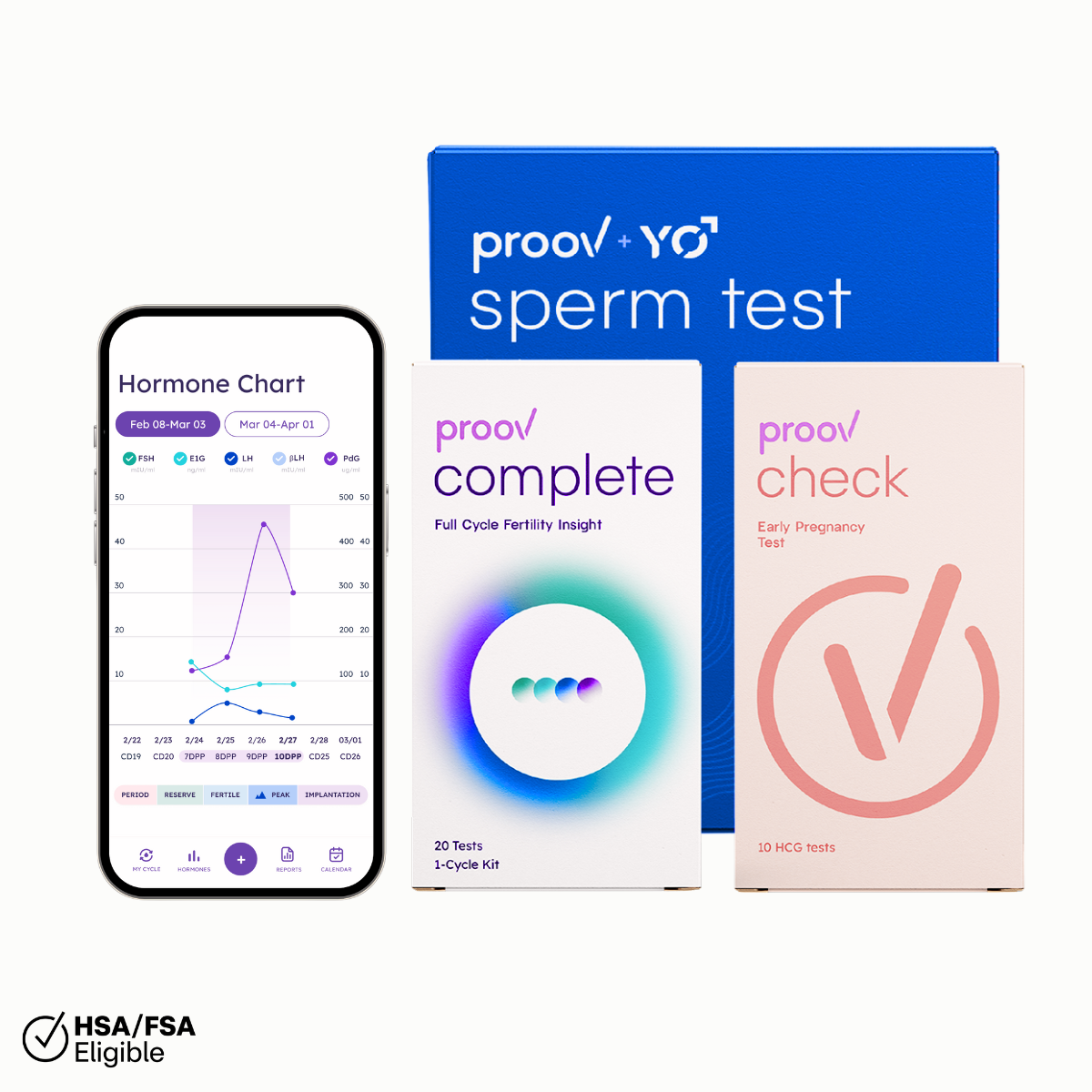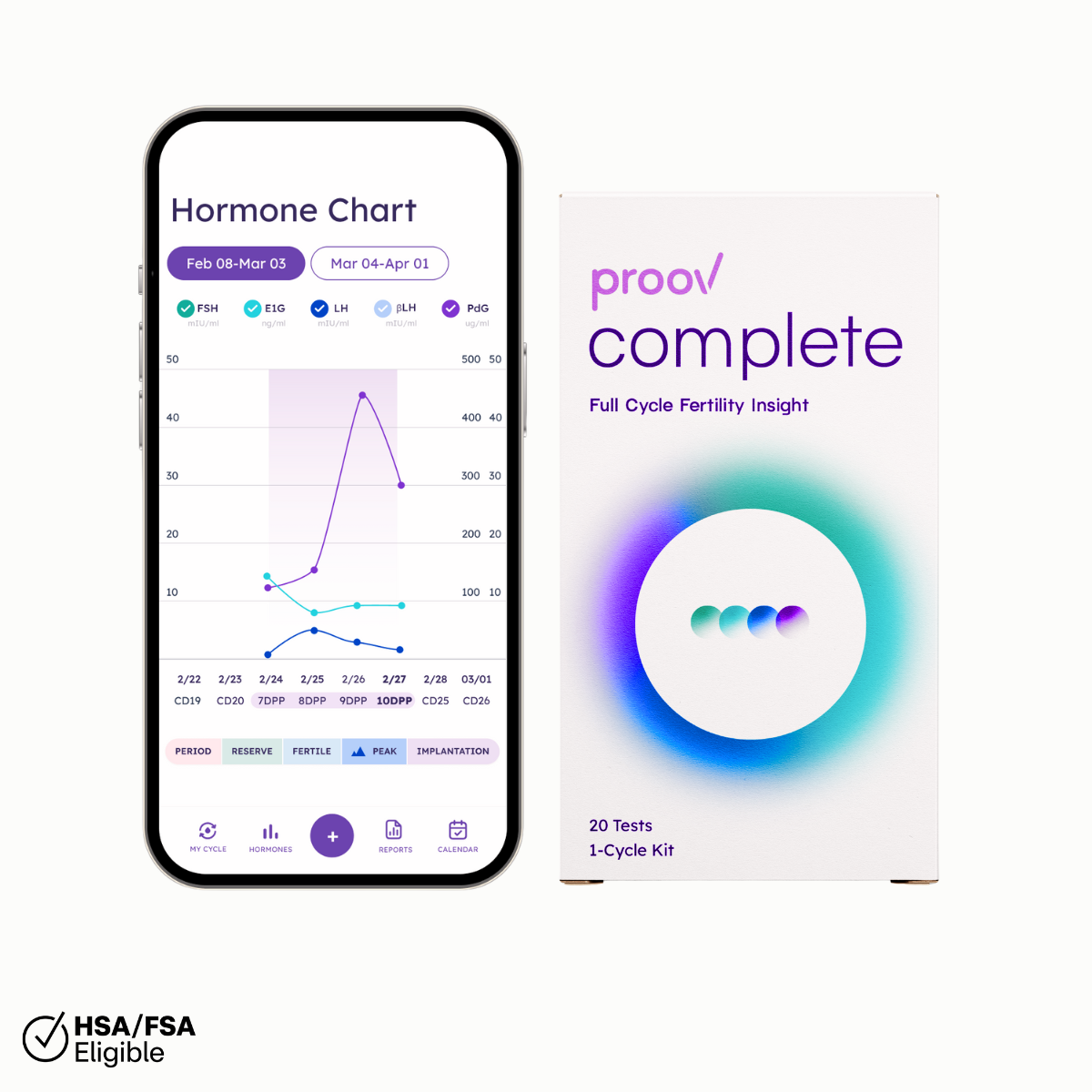Written by: Dr. Amy Beckley, PhD, Founder and Inventor of the Proov test – the first and only FDA-cleared test to confirm successful ovulation at home.
Written on 8/26/20
Did you know genetics can play a role in your fertility? A recent study found that one in three women in Europe inherited a gene from the Neanderthals that increases fertility. The Neanderthal gene is associated with fewer bleedings during pregnancy, fewer miscarriages, and more live births.
But why do women with this gene have increased fertility? Extra progesterone receptors! Keep reading to learn more about the Neanderthal gene and how it impacts fertility.
Quick Review: Why is Progesterone Important?
Progesterone is a powerful hormone when it comes to conception and pregnancy! After ovulation during the second half of your cycle — the luteal phase — the empty follicle produces progesterone. Progesterone works to stabilize the uterine lining and prepares it for implantation, given the egg is fertilized. Without sufficient progesterone levels the uterine lining may not be ready to receive an embryo, which can make implantation difficult.
After conception and implantation, progesterone remains elevated during early pregnancy to continue to support the growing embryo. Studies have shown that low progesterone levels can lead to bleeding in early pregnancy and early miscarriages.

How does the Neanderthal gene increase fertility?
The Neanderthal gene is a genetic variation that gives extra progesterone receptors to cells that need progesterone most, such as endometrial (uterine lining) cells. When progesterone is present, it physically sticks to a progesterone receptor. So, the more receptors there are, the more progesterone a cell can absorb.
When progesterone sticks to a receptor, it changes the behavior of that cell. In endometrial cells, the presence of progesterone makes the cell more receptive to an embryo and increases the chances of successful implantation. The more progesterone that cell can receive, the more receptive it will be and the better chance an embryo has at surviving.
Women with the Neanderthal gene have protection against common low progesterone complications due to the higher amount of progesterone their cells are able to retain. This can potentially prevent them from bleeding or miscarriage during early pregnancy, which is why the gene has been shown to increase fertility.

So what if I don’t have the Neanderthal gene?
Unfortunately, not all of us are lucky enough to have the Neanderthal gene and extra progesterone receptors. But having sufficient progesterone levels when trying to conceive is still important!
Progesterone makes the cells in the uterine lining more receptive to an embryo and therefore improves the chances at successful implantation. To do this, progesterone levels post-ovulation must remain elevated for a long enough period of time. While progesterone levels can be measured through a blood draw, these tests only show levels at one point in time and give no information about whether or not levels remain elevated for long enough.
That’s where Proov comes in! Proov is the first FDA-cleared PdG - a progesterone metabolite - test kit for ovulation confirmation. Published studies have shown that PdG in urine correlates to levels of progesterone in blood.
Because Proov is a non-invasive at-home test, measuring PdG over several days is simple. In fact, we recommend testing on days 7, 8, 9, and 10 after suspected ovulation. Four positive Proov tests during this testing window confirm “healthy” ovulation. Negative Proov tests during the testing window can indicate “weak” ovulation or no ovulation, both of which will make it difficult to successfully conceive.
While your genetics may not provide additional progesterone receptors, confirming healthy ovulation is a great way to ensure you had a good chance at successfully conceiving. If you have any questions about Proov or the Neanderthal gene, feel free to reach out to us at info@proovtest.com!
Note: Proov is not intended to be used to monitor pregnancy. If you are concerned about early bleeding or potential miscarriage, please consult your doctor.













